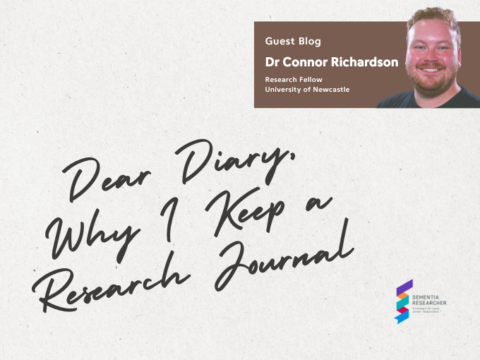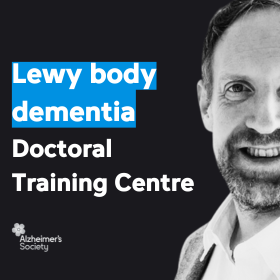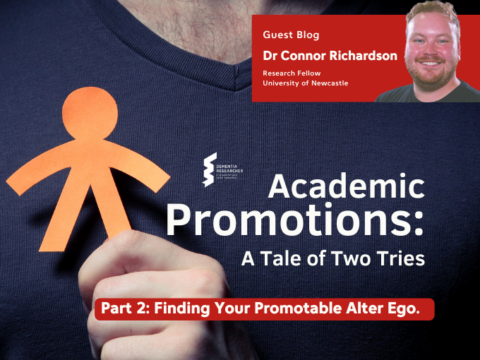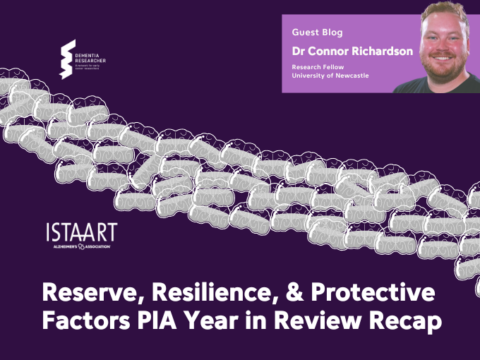I want to talk about something that is all too often a mystery to many of us, we know it happens across many workplaces, it may have happened to someone you know, for some it is thrust upon them, others may be chasing after it and never quite grasping it. Yes, I’m talking about academic promotions.
This year I was successful in being promoted from Research Associate to Senior Associate at Newcastle University… I’ll hold graciously for applause… after attempting last year and being unsuccessful, but we don’t have to dwell on that bit too much.
So, I’m writing about why and how I applied, found the process and ultimately what made the difference between the two applications only a year apart from each other. Hopefully my experience will help some of you thinking about going through the process yourselves. In this first blog I will discuss my first attempt, the process and dealing with an unsuccessful run.
Why I applied when I did?
This is something I didn’t expect to write about until I sat down and started writing. Looking around I could see colleagues with more experience than me who had not become SRA’s and some people in the job less time who had. I knew there was an SRA position, but I didn’t really think about how or why you got there.
I didn’t start thinking about it until 2022 after the COVID-19 pandemic settled down. A colleague around the same experience as decided to apply for an SRA position within his existing group, applying as if he were an external candidate, and he got the job deservedly! Although I was happy for him, the competitive cogs in the back of my head started to slowly whir into action. It was also around this time that the cost of living was beginning to bite, and although we might not like to admit it as noble scientists, the prospect of a pay bump was looking exciting.
Putting feelers out to other colleagues I flattered by their responses…, “Go for it” … “I’m surprised you haven’t already” … “you’ll walk it”, although I maybe should have taken it with a pinch of salt. My line manager agreed to support me but was a little more sober.
The Promotion Application and Process?
Of course I can only speak to the promotions process at Newcastle, for us there is one promotion round a year. You put in a relatively hefty application form in November, it is signed off by the Institute Dean and sent to a Faculty Committee to decide the following March/April. There is no interview process for good or bad and if successful you are officially promoted in August. So, it is quite a lengthy process start to end with everything riding on your application. So, the let’s go through the what the SRA application asks for at Newcastle:
- Firstly, you are required to tick ONE of the following:
- Wholly exceptional performance in Research and Innovation
- Wholly exceptional performance in Teaching and Scholarship
- Excellent performance in both Research and Teaching
- And underpinned by:
- Engagement
- Management and Leadership
- Personal Statement
- CV
- Education/ Qualifications
- Positions
- Memberships / formal roles
- Esteem Indicators
- Teaching and Scholarship
- Research Outputs
- Screenshot of google scholar H index
- Research Contribution
- Funding Awards and Postgraduate Supervision
- Engagement and Knowledge Exchange Achievements
- Management and leadership
Right off the bat I found it daunting being asked if my performance was “wholly exceptional” … immediately I felt thrown off guard my thoughts something like:
“Wholly exceptional…. I think I’m good at my job, probably better than some but not as good as others… I may have had points of being wholly exceptional for brief periods…”
The expectation of being wholly exceptional at work is woefully unrealistic and open to huge amounts of interpretation. The imposter syndrome had already set in before we had started.
Some of these are standard job application stuff but some can be tricky and open to interpretation, for example I’d never heard the phrase ‘esteem indicator before’ and I felt almost exposed by having my H index printed in the application. Ranking my contribution to papers in percentage terms felt very uncomfortable at the time.
I will say I made one of my first big mistakes right off the bat. I spent far too long ruminating over the application, giving it far too much attention so that it evolved from something I was taking a long shot at to the point where I had invested a lot into it, which will have consequences later.
We regret to inform you…
Fast forwarding slightly I completed my application and went to meet with my institute Dean to discuss supporting my promotion. Although she was happy to support me if I wished, she advised me that she wasn’t sure I was quite independent enough to be sure of promotion and it could go 50/50. Although in the meeting I tried to be composed and professional, I’m not ashamed to say I felt a little emotional on the way home, I was totally taken by surprise how much it suddenly meant to me, like much of my value in work was at stake.
March came around and unfortunately, I got the news that my application was unsuccessful. Of course I was disappointed, but I’m embarrassed to say I took it a little bit harder when I heard a few of my friends were successful.
Like I mentioned I don’t want to dwell too much on the negative, but I will mention a few things I have thought about this period in hindsight. I think we take for granted sometimes how much committing to an academic career demand of us, from the minute we commit to those masters or PhD courses you’re all in, our minded is stuck in a zero-sum game. We’re maybe just hardwired to give a little too much ourselves that can come back to bite us.
Secondly, it’s a bit cliché but in some ways the knockback was a healthy thing. It did take a bit of the sheen off academia. It can sometimes feel like its outside of ‘regular jobs’ but was a big reminder that in the end we are employees in a workplace, it was really the first time I started to ask myself “Am I valued?”… “Am I happy with my salary?”… “Would it be different in another setting?” the things most people in careers ask themselves daily. At the time it felt bleak, like a defeat but it’s probably a healthier relationship to have with research as a job.
A New Plan
So, after a few tears, a few more packets of biscuits and even more drinks later. I began to take stock, in reality what my Dean told me was true, it was a close call and my feedback was that I was close but my application had faults. I wasn’t confident enough in my unique selling point and if the funding for my fellowship had been processed by finance a few weeks earlier my income generation would have looked better.
Most importantly I had learned some things about myself at work. I was confident enough to realise I didn’t feel I was being paid my worth, which in turn made me more open to the idea that if it wasn’t going to change at Newcastle, I was open to other opportunities. Not that I wanted to leave but there was a sense of freedom on being open to more possibilities.
I set myself a goal that in the next year I would give it one more goes really focus my CV for the next round, and if that was unsuccessful and I was unhappy I would begin to look for new opportunities. Rejection made me more open about discussing pay and progression with my managers, it led them to support me being awarded a pay increase and bonus, not the same as a new pay band but the recognition went a long way. Another strong example of the old Geordie saying, “Shy bairns get nowt!” So although I didn’t get what I wanted I came out with a net benefit.
In my next blog I’ll talk about dusting yourself off for round two and what changes pushed the second over the line.

Dr Connor Richardson
Author
Dr Connor Richardson is a Neuro-epidemiology Research Associate in the Newcastle University Population Health Sciences Institute. Connor is the research statistician for the Cognitive Function and Ageing studies (CFAS) multi-centre population cohort. His research interest lies in using advanced statistical modelling and machine learning to measure dementia risk. Connor blogs about his research, Equality, Diversity and Inclusion and sometimes his Pomapoo’s.

 Print This Post
Print This Post





